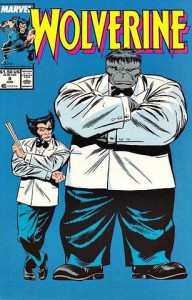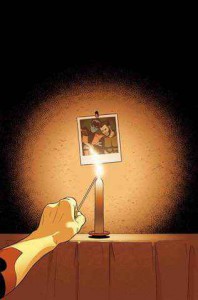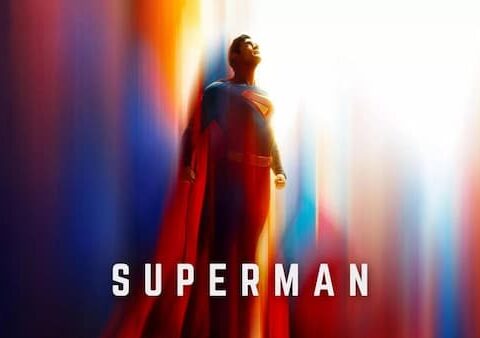So it’s probably Marvel’s biggest ‘event’ of the year and the one that’s been the most hyped beforehand; that being the ‘Death of Wolverine’, a 4-part story that begun this month and will conclude with the death of essentially the poster-boy of the X-Men franchise and one of Marvel’s most popular icons.
That’s right; the great survivor, that steady rock of the Mutant world, the man who always finds a way to cheat death, the man who always heals… is on his last legs. The Death of Wolverine #1 and #2 have begun the final process towards whatever ill fate it is that awaits
him. Love him or hate him, there’s no denying Wolverine’s importance or his enduring popularity.
However, almost as soon as the event was announced many months ago it was greeted with almost blanket scepticism by comic-book fans who, despite the insistence that Wolverine was being killed off for good and wouldn’t be coming back, are not naive about such matters.
Almost no one actually believes this will be the last we see of Wolverine in comic books and more or less everyone views The Death of Wolverine as more an extended marketing gimmick than anything else.
Dying for a little while is simply a rite of passage for the most popular comic-book characters, after all.
That view of it, however, won’t stop the four-issue ‘send off’ being widely read and talked about, so as usual marketing gimmicks tend to be effective in comics. Get serious, people: no way is Marvel permanently killing off one of its two or three most popular characters; they didn’t do it with Captain America, they’re not doing it with Wolverine. Even Illyana Rasputin didn’t stay dead (and nor should she have; Magik’s too good a character to not be around).
And while there is perhaps something sometimes uncomfortable with the way comic-books treat the subject of death itself, the pre-knowledge that Wolverine’s flight to the Land of the Dead includes a return ticket does not necessarily mean the story being told in the Death of Wolverine #1 – 4 is entirely without merit or value, any more than the Death of Superman in the early nineties didn’t count for something in the Superman mythology or any more than Claremont’s apparent killing off of Magneto in the early nineties didn’t create a substantial amount of quality aftermath storytelling.
Or likewise The Death of Captain America, which I’ve recently been re-reading; as much as Steve Rogers was never going to be gone for long, the pantomime of his death allowed for the exploration of some interesting issues and allowed something relevant to be said about Captain America as a character, a symbol and a presence.
The Death of Wolverine probably won’t be able to touch upon those same themes, but it might nevertheless have a lot to say and might breathe new life into a very old, tired (but ultimately much loved) character.

–
From his debut in the pages of The Incredible Hulk #180 – exactly forty years ago this October – and his proper X-Men debut in 1975’s legendary and game-changing Giant-Sized X-Men #1, everyone’s favorite adamantium-clawed, spandex-clad, cigar chomping, Canadian was set on a path to becoming one of the Marvel Universe’s most popular front-line characters. Though clearly his creators didn’t at all envision this new character joining the likes of Spiderman, Captain America and the Hulk within a decade or so as one of the company’s most famous, recognizable and marketable assets.
Conceived initially by writer Len Wein and designed by John Romita Sr (though penciled by Herb Trimpe in that November ’74 Hulk debut), Wolverine made his first full appearance the following month in Incredible Hulk #181.
Far from a case of ‘destined for greatness’, with hindsight its remarkable to note that Wein and Trimpe didn’t have any great ambitions for Wolverine at his point of conception.
“It was just one of those secondary or tertiary characters, actually, that we were using in that particular book with no particular notion of it going anywhere,” Herb Trimpe said in 2009. “We did characters in The Incredible Hulk all the time that were in issues and that was the end of them.”
It’s also an amusing bit of historical trivia that Gil Kane, who drew the cover artwork of the legendary Giant-Sized X-Men #1 illustrated Wolverine’s mask incorrectly, but penciller Dave Cockrum liked this error so much that he made it Wolverine’s definitive look.
Even more interesting than that is the fact that as the revitalized X-Men series under Chris Claremont’s stewardship moved forward, Claremont contemplated dropping Wolverine from the mix entirely, this being at a time where Nightcrawler (my personal favorite) was the much preferred character.
Yet without question Wolverine went on to become not only one of the most popular X-Men characters, but the most popular X-Men crossover character to non X-Men readers and then the face of the X-Men world in the broader cultural landscape, thanks to the animated series’ and the later film franchise.

Yet there has been for some time a degree of resentment of Wolverine from part of the X-Men comics fan community; this is in essence probably less a resentment of the character himself and more a resentment of writers and executives affording Wolverine so much center-stage coverage in the various incarnations of the X-Men franchise (comic-book, film and cartoon alike) while numerous other characters are often left in relative obscurity for large amounts of time; Archangel, Psylocke, Colossus, to name just a few among many – and I can’t remember the last time I learnt anything new about Iceman/Bobby Drake.
So I’m not sure the X-Men community is going to be in grieving necessarily, though of course there are the die-hard Wolverine fans (of which are there a great many) who’ll treat this event as a very big deal (even though they know death doesn’t stick in comic books).
The reason Wolverine is being ‘killed off’ right now, other than the marketing ploy side of it, is because no one knows what to do with him anymore.
With the major exception of Cyclops, that’s probably true of a number of X-Men characters (the new Magneto solo title, for example, is an attempt to do something interesting with Erik Lensherr, but even now Magneto is still very, very uninteresting compared to twenty years ago); but Wolverine, unlike say Warren Worthington or Betsy Braddock, is seen as more important to the marketing side of things, seen as pretty much the face of the X-Men side of the Marvel Universe and so it is much more strategically important to bring him back to center-stage and try to breathe new life into him; which conversely is accomplished by subjecting him to his mortality.
Of course when a character has been around for that long there’s bound to come a point where it seems like everything has been said and done already and there’s nowhere left to go; which seems to be the point when a big event like ‘death’ is employed to act almost like a ‘refresh’ key on a keyboard. By playing out the pantomime of killing a very popular character off you draw a huge spotlight onto that character, you make people stop taking their presence for granted, you sell a bucketload of comics for that period and you hope that people will appreciate that character a lot more while they’re gone and thus make their ‘return’ at some later date all the more desirable.

This has of course been played out numerous times, with the Death of Superman and the Knightfall paralysis of Bruce Wayne among other examples, including with Spiderman, Magneto, Nightcrawler, Captain America, etc.
At some later date a staged ‘return’ of the character will garner as much hype, coverage and speculation as the death itself; and having been dead the character can be refreshed, even re-tooled, upon their resurrection.
Wolverine was never one of my five to ten favorite X-Men characters, not even when I was getting into X-Men comics as a teen; I’ve always felt he is at his most effective as a character when he’s part of a larger dynamic and he’s playing off other characters, whereas I’ve never found him that interesting as a solo character and I rarely read his solo title unless it was necessary reading in part of a crossover (1993’s Fatal Attractions, for example).
That’s not an attack on the character necessarily, as I have that same attitude towards other characters too; Iron Man, for example, who I enjoy reading in Avengers or Guardians of the Galaxy titles but have rarely had the enthusiasm to read in his solo titles. But for all that, Wolverine has never felt like anything less than absolutely essential to the dynamic, the foundation, of the X-Men world.
Wolverine has always been great to read in terms of his place in a larger set-up, his interplay with, for example, Scott Summers, Jubilee, Kitty Pryde, Professor X or Jean Grey among various others. It’s difficult to think of many memorable, big X-Men events or storylines that were centered on Wolverine or in which Wolverine was the key figure, but there are plenty in which he played a significant role without being the most important character. That’s how I’ve probably liked him best.
Yet while I’ve never considered him to be one of my favorites, he has nevertheless always felt like an utterly necessary presence in the mix, an utterly necessary part of the bigger picture.
I think, with hindsight, part of my hesitation towards the character in my early days of comic-book reading was in seeing how much he was used to market the X-Men world and how centre-stage he was compared to the multitude of other interesting, worthy characters in the X-Men tapestry; having, I guess, a bit of an outsider mentality myself I tended to have a guarded attitude towards characters that seemed too popular and was more drawn to the more intriguing ‘lesser’ characters in the mix.
And this sense of Wolverine being something of an ‘attention hogger’ at the expense of numerous other characters has, if anything, increased over time by spreading into the X-Men cartoon and film worlds too: not only is Wolverine the front-and-center character in the X-Men film franchise, getting entire films to himself, but they even named the last animated series ‘Wolverine and the X-Men‘ instead of being marketed as a proper ensemble series.
All of this has perhaps led to some of us regarding the character a little unfairly, when in fact it isn’t Wolverine that’s the problem – it’s the frequent lack of respect afforded to a number of other characters that’s the issue.
And without question, Wolverine is one of the X-Men world’s best characters; he is certainly one of its most defined and idiosyncratic characters – you think of him and a dozen traits and associations come to mind immediately, the character having such a substantial individual mythology, which isn’t necessarily the case for every character. Even reading something like X-Men: Second Coming (2011), which I adored, I can’t imagine that series without Wolverine in it, even though he isn’t very important to that story.

So as a long-time X-Men fan, I can’t imagine the X-Men world without him in it; moreover, on a business level there’s no way in Hades that those calling the shots at Marvel are genuinely envisioning a future without one of its top three or four money characters.
That Wolverine will be back is a no-brainer; it will be interesting, however, to see how long it takes for that to happen (I’m predicting about 18 months).
It will also be interesting to see, of course, how the Death of Wolverine series plays out and what that key, terminal moment will consist of; this makes me sound old, but I personally find it difficult to imagine it matching that famous Fatal Attractions moment (in 1993’s X-Men #25) where he gets the adamantium brutally ripped from his body by Magneto – he didn’t die then, but the event itself and the immediate aftermath in terms of Logan’s character was probably the most interesting I’ve ever found Wolverine.
As far as this expanded, drawn-out ‘death saga’ goes, I’m on the fence as to whether amplifying the event in this way lends itself to a more poignant ‘finish’ or whether a simpler, more contained ‘death’ event works better; Nightcrawler, for example, ‘died’ fairly suddenly in the course of a larger storyline and it was suitably heroic, even poignant, without needing the vastly expanded reading list or hype.
Actually when I think of two of the most memorable and poignant ‘deaths’ in the X-Men annals I think of Magneto’s in the famous Claremont/Lee X-Men #3 (1991) and Illyana Rasputin’s in Uncanny X-Men #303, neither of which required expanded reading requirements and both of which occurred within the standard flow of their monthly titles.
At any rate, death is temporary in comic land; most recently demonstrated, as it happens, by Logan’s good chum Nightcrawler returning to the land of the living earlier this year. Incidentally, I’ve been reading the Claremont-written Nightcrawler series and mostly enjoying it.
But with Kurt Wagner dying and coming back to life, being reunited with his old pal Wolverine, and now Wolverine going off and dying… well, one imagines ‘death’ loses its aura after a while and becomes more like a sort of revolving door. I’m hoping Kurt sends Wolverine a text message at some point in this four-part series to the effect of “Sorry to hear you’re dying; have fun, I’ll see you in a few months…”





cool review and take
Thanks man 🙂